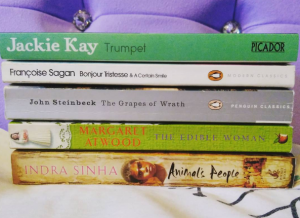“Reading is to the mind what exercise is to the body.” – Joseph Addison.
First Year Overview
The first year of the English Literature course here at York St John is designed to act as an introduction to Literature at university level. For that reason, your assignment marks don’t count towards the final degree that you’ll graduate with. Various forms of assignments are used at university and many of those will be unfamiliar to you, so the course gives you space to make mistakes whilst you’re finding your feet. Over the course of first year, you’ll be assessed primarily through essays, but, depending on the modules you take, there are also assignments which involve presentations, portfolios, creative pieces, reflective commentaries, and reviews. Going through so many forms of assessments in a year where mistakes are permitted is designed to help you prepare for the later years of your degree. First year lays the foundations, and you build upon those as you move on through the course.
As it acts as an introductory year, modules at level one tend to cover the basics. First year reading lists cover all forms of literature – from novels to poetry to film – from a range of time periods. You’ll encounter familiar names such as William Shakespeare and Jane Austen, but first year also includes plenty of contemporary literature from different cultures and perspectives. By the time your first year finishes, you’ll have visited enough different types of literature to know what appeals to you. This helps you to make informed decisions as you move through the rest of your degree, where a wider range of modules and texts become available.
By Elisha Wise
This is a rough guide based on our experience of first year. Modules can and often do change from year to year – books on reading lists change, new ideas are introduced, and sometimes whole new modules are created. However, as Year One is a foundation year, the structure of your course will probably introduce you to some of the same topics and writers that our year group studied. Even if things do change, this should give you a vague idea of the kind of things you can expect from English at YSJ.
Reading Texts 1
This module serves as a basic introduction to literature at university. It primarily involves detailed study of five texts, most of which are staples of the literary canon, but also including Kate Atkinson’s Behind the Scenes at the Museum, a novel set in York. As well as the usual lectures and seminars, this module includes Personal Development Sessions which briefly cover important essay writing skills and get you thinking about why literature at university is so important. The foundations of everything you learn across your degree come from this module, and it’s also the place where a lot of friendships are formed.
Example texts: Northanger Abbey by Jane Austen; Twelfth Night by William Shakespeare; The Metamorphosis by Franz Kafka.
Forms of Narrative
This is also an introductory module designed to help you get to grips with university level literature, but its programme is a bit more wide-reaching than Reading Texts 1. Students study novels, plays, poems, short stories, and films, ranging from the Roman empire to the present day. It covers well-known texts, such as Mary Shelley’s Frankenstein, alongside more obscure ones such as Tenth of December by George Saunders. As the primary focus of the module is form, it also includes creative writing opportunities so that you can try some of the forms in question for yourself, even if you’re a Single Honours Literature student. In attempting to cover all bases, Forms of Narrative prepares students for the range of texts they’ll encounter later in their degree.
Example texts: Metamorphoses by Ovid; Top Girls by Caryl Churchill; Room by Emma Donoghue.
Writing for Academic Success
Although some short reading is assigned for this module, it is generally more practical than literary. Writing for Academic Success aims to improve students’ assignment skills, with regular workshops focused on essay writing, referencing, avoiding plagiarism, and all the other things you need to know in order to do well. You’ll also be introduced to literary theory for the first time and you’ll start to evaluate critical viewpoints, deciding which is best to use. Assessment on this module is a little different to the others, with the two assignments focusing on planning and presentation skills. By the end, you should feel a lot more prepared to face all of the challenges ahead of you.
Example texts: ‘The Yellow Wallpaper’ by Charlotte Perkins Gilman; ‘The Destructors’ by Graham Greene; poetry by Claude McKay.
Reading Texts 2
This module builds on Reading Texts 1, but focuses more on poetry and short fiction than novels and plays. You will read texts from a variety of time periods, gathering vital historical context as you go along. The difference with this module is that reading is assigned on a group by group basis, so you don’t always read the text which is the main focus of the lecture. This is done to encourage you to read more widely and consider how texts from specific eras are connected. As poetry and short stories tend to be forms that students find challenging, this module is really helpful in getting you used to dealing with more difficult texts.
Example texts: ‘Goblin Market’ by Christina Rossetti; ‘The Tell-Tale Heart’ by Edgar Allen Poe; ‘Sonny’s Blues’ by James Baldwin.
Contemporary Writing
The first of the more focused modules, Contemporary Writing exclusively features texts written within the last ten years and aims to get students thinking about their contemporary moment. Many of the texts featured have non-Western settings and deal with issues or events that you might not necessarily be familiar with, but what connects them all is their engagement with politics and current affairs. By the end of this module, you’ll not only have read more diversely, but you’ll have actively engaged with the world around you and evaluated the vital role that literature plays in understanding it.
Example texts: Animal’s People by Indra Sinha; Refugee by Sophie Nicholls; Freakangels: Volume 1 by Warren Ellis & Paul Duffield.
Gender & Writing
This is a more theory-based module which focuses on one thing in particular – gender. Students will focus on ideas of masculinity and femininity as they read the texts on the module, and will be encouraged to think of gender as socially constructed rather than biologically determined. Starting in the nineteenth-century, your required reading will get more recent as the module progresses to show how ideas of gender have changed over time. Issues of intersectionality are also raised, particularly regarding race, and overall the module feels very relevant to contemporary society and prompts many important discussions.
Example texts: The Grapes of Wrath by John Steinbeck; The Fat Black Woman’s Poems by Grace Nichols; Trumpet by Jackie Kay.
By Elisha Wise
Interview with Zoe Buckton – Chair of Humanities, and English Literature Course Representative
Why did you choose to come to York St John?
I’d been to other uni’s and they were so big and daunting and then I came here and it felt like a second home. You could see people walking around the campus and saying hello to the people they knew. It just seemed like a really nice network of people to be in so that influenced me to come here.
What course do you do?
I do English Lit and Creative Writing- Joint honours.
What has been your favourite module?
I liked ‘Imaginary Worlds’ the most, just because of the texts that were on it and because I’m a Sci-fi nerd. Also ‘Forms of Narrative’ was really good as well in first year, so that one too.
Do you have a favourite book that we’ve read on the course?
I liked The Day of the Triffids a lot. I like Rosemary’s Baby and that’s coming up in the Gothic module. So, I think those two probably.
Why did you decide to be a course rep?
In first year I stood because before I came to uni I was a really anxious little ball of fear. I was like “I should probably try and do something”. I didn’t really know much about it until I stood for it but I loved it to death. So, I stood for it again in the second year and I just really enjoy it because it’s networking with the students, getting feedback and talking with the tutors. It also means I’ve got really good relations with the tutors and a lot of the students as well. It’s a really nice role.
What have you been able to do whilst being a course rep?
Whilst I’ve been a course rep, I’ve helped with the restructuring of ‘Imaginary Worlds’. At the moment I’m making a book selling system in uni so you should be able to sell your course books from third year down to first years. That should be online next year, hopefully. Basically, you’re just making sure that all the feedback gets back to the tutors but it’s not in a nasty way, everything comes through nicely. I did an evaluation of this year recently that went through. So it was all the highlights and stuff that I’ve worked on through that.
Why did you want to become the Chair of Humanities?
I got elected to do it next year. Basically, I decided that I wanted to do more to do with the uni but I wanted to be able to do a bit more than be a rep. Originally I was going to run for President of Education and then I saw the candidates and thought ‘No, I could not do that!’ They were working so hard, it was really inspirational. I decided to go for chair and if I could do that well then try and do the presidency. The chair role just seemed really ideal because I love Humanities in particular and English and Creative Writing. I’d get to work with the whole team and the reps, it just sounded really nice.
What does it entail?
Basically, just communicating with the reps more and with the tutors. It involves holding meetings and going to the education zones. Also making sure that all the feedback gets acted upon. I’m hoping to work with the rep systems to make rep surgeries. All the reps can go and sit in a room and if you’ve got an issue with the course, you can just drop in instead of going to find us because we’re not very visible all the time. We’re just trying to put more stuff in place for the students so the course runs well.
Interview conducted by Sophie Richardson and Rachel Hancock.

Jack Edwards (Jeddy)- Creative Writing Course Representative
What exactly do Course Reps do?
We are the link between students and the SU or the tutors. So if you don’t want to go directly to your tutors or you want to make a complaint about the course for example, students can tell us and we can then take it to our meetings and inform the correct person.
What made you want to become a Course Rep?
It looks good on your CV. It’s also nice as a way to get to know more people; it’s a fun way of talking to people.
Are you glad you decided to become a Rep?
Yeah it’s really good fun. It’s good getting to meet the tutors, and being able to sit and talk about the modules, and how things could change. During first year the course was more English Lit, and I know that because of what we’ve said to them, they’re going to alter that for coming students. So it does make an impact.
Why did you pick York St. John?
It was the only one I chose actually, mainly because my family live an hour away, so it just works for me.
What is the best thing about this uni?
I love the Silent Floor of the library, and the bean bags in the Design Centre are also pretty snazzy. The teaching is good as well, the tutors are definitely engrossed in the teaching.
Are you single or joint honours?
Single honours Creative Writing.
So do you do a lot of English Literature modules as a Creative Writing student?
Yeah, second year not so much but first year was essentially an English Lit degree.
Do you like the balance between Literature and Creative Writing?
I’m fine with it because I did English at A Level, so I love it. But I know a lot of people who did drop out in the first year because doing Creative Writing involves studying writers’ strategies, so it involves a lot of reading.
What is it about Literature that you like?
I’ve always loved books; I’ve had my head in a book since I was a kid so it’s always appealed to me.
What has been your favourite module so far?
Probably Fiction, because we actually got to do Prose Writing, which is probably what most Creative Writing students want to do.
What has been your favourite book you’ve studied during the Literature modules?
Zeitoun was pretty cool.
Interview conducted by Eleanor Squires and Elisha Wise.
